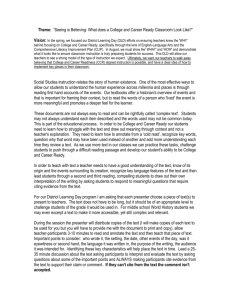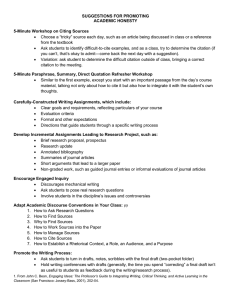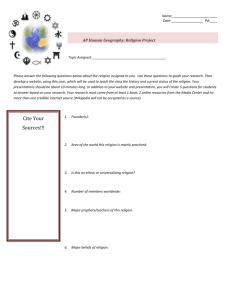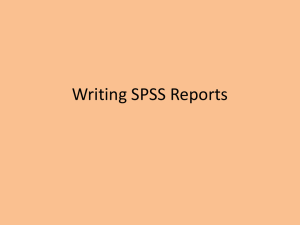WRT 105 Unit 3
advertisement
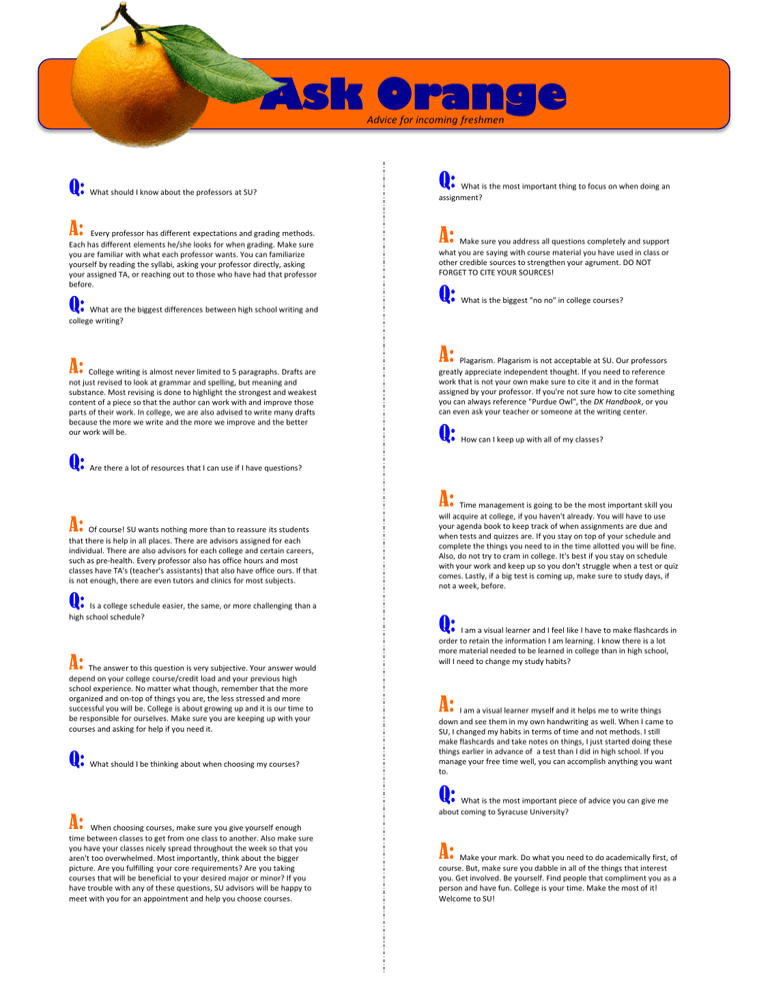
Ask Orange Advice for incoming freshmen Q: What should I know about the professors at SU? Q: A: A: Every professor has different expectations and grading methods. Each has different elements he/she looks for when grading. Make sure you are familiar with what each professor wants. You can familiarize yourself by reading the syllabi, asking your professor directly, asking your assigned TA, or reaching out to those who have had that professor before. Q: What are the biggest differences between high school writing and What is the most important thing to focus on when doing an assignment? Make sure you address all questions completely and support what you are saying with course material you have used in class or other credible sources to strengthen your agrument. DO NOT FORGET TO CITE YOUR SOURCES! Q: What is the biggest "no no" in college courses? college writing? A: College writing is almost never limited to 5 paragraphs. Drafts are not just revised to look at grammar and spelling, but meaning and substance. Most revising is done to highlight the strongest and weakest content of a piece so that the author can work with and improve those parts of their work. In college, we are also advised to write many drafts because the more we write and the more we improve and the better our work will be. A: Plagarism. Plagarism is not acceptable at SU. Our professors greatly appreciate independent thought. If you need to reference work that is not your own make sure to cite it and in the format assigned by your professor. If you're not sure how to cite something you can always reference "Purdue Owl", the DK Handbook, or you can even ask your teacher or someone at the writing center. Q: How can I keep up with all of my classes? Q: Are there a lot of resources that I can use if I have questions? A: A: Of course! SU wants nothing more than to reassure its students that there is help in all places. There are advisors assigned for each individual. There are also advisors for each college and certain careers, such as pre-health. Every professor also has office hours and most classes have TA's (teacher's assistants) that also have office ours. If that is not enough, there are even tutors and clinics for most subjects. Q: Is a college schedule easier, the same, or more challenging than a high school schedule? A: The answer to this question is very subjective. Your answer would depend on your college course/credit load and your previous high school experience. No matter what though, remember that the more organized and on-top of things you are, the less stressed and more successful you will be. College is about growing up and it is our time to be responsible for ourselves. Make sure you are keeping up with your courses and asking for help if you need it. Q: What should I be thinking about when choosing my courses? Time management is going to be the most important skill you will acquire at college, if you haven't already. You will have to use your agenda book to keep track of when assignments are due and when tests and quizzes are. If you stay on top of your schedule and complete the things you need to in the time allotted you will be fine. Also, do not try to cram in college. It's best if you stay on schedule with your work and keep up so you don't struggle when a test or quiz comes. Lastly, if a big test is coming up, make sure to study days, if not a week, before. Q: I am a visual learner and I feel like I have to make flashcards in order to retain the information I am learning. I know there is a lot more material needed to be learned in college than in high school, will I need to change my study habits? A: I am a visual learner myself and it helps me to write things down and see them in my own handwriting as well. When I came to SU, I changed my habits in terms of time and not methods. I still make flashcards and take notes on things, I just started doing these things earlier in advance of a test than I did in high school. If you manage your free time well, you can accomplish anything you want to. Q: A: When choosing courses, make sure you give yourself enough time between classes to get from one class to another. Also make sure you have your classes nicely spread throughout the week so that you aren't too overwhelmed. Most importantly, think about the bigger picture. Are you fulfilling your core requirements? Are you taking courses that will be beneficial to your desired major or minor? If you have trouble with any of these questions, SU advisors will be happy to meet with you for an appointment and help you choose courses. What is the most important piece of advice you can give me about coming to Syracuse University? A: Make your mark. Do what you need to do academically first, of course. But, make sure you dabble in all of the things that interest you. Get involved. Be yourself. Find people that compliment you as a person and have fun. College is your time. Make the most of it! Welcome to SU!
